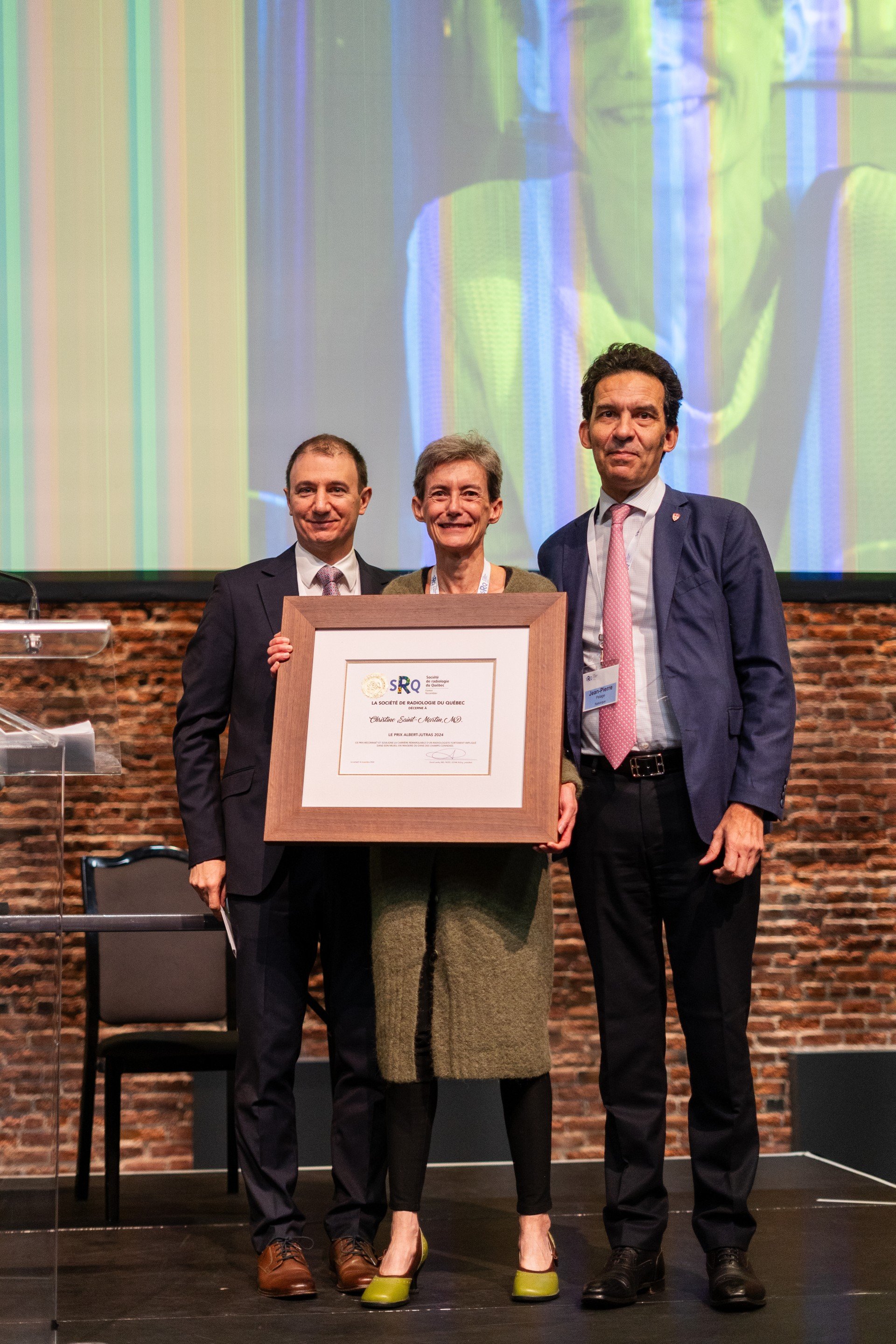

Québec Science honours RI-MUHC discovery by Dr. Christine McCusker, researcher and allergist-immunologist at the Montreal Children’s Hospital
8 January 2016
One of the top ten scientific breakthroughs of 2015 selected by Québec Sciencemagazine was achieved by a team from the Research Institute of the McGill University Health Centre (RI-MUHC) led by Dr. Christine McCusker, researcher from the Translational Research in Respiratory Diseases Program of the RI-MUHC and allergist-immunologist at the Montreal Children’s Hospital of the MUHC. Their innovative work, that attracted considerable media attention last spring, is featured in the current issue of Québec Science magazine.

From left to right: Dr. Husheem Michael (first author), Dr. Christine McCusker (senior author) and Di Xue (one of the co-authors and PhD student in Dr. Bruce Mazer’s laboratory). Other co-authors (not pictured) are Dr. Bruce Mazer, and the research assistants, Yuanyi Li, Jichuan Shan and Yufa Wang.
Dr. McCusker’s team tested a potential vaccine, administered as a nasal spray, that redirects the immune response away from developing allergies. This discovery could bring hope to millions of Canadians suffering from allergic airway disease.
“We studied a molecule called STAT6 that is important in the development of allergic response. In a collaborative effort, over several years, the team developed and tested a peptide (a small piece of protein) which blocks this STAT6 activity and teaches the immune system to tolerate allergens,” says first author, Dr. Michael Husheem, MD, PhD in Dr. McCusker’s lab.
“What’s beautiful about our approach is that you do not have to couple the peptide with a specific allergen. Since it just nudges the immune system away from the allergic response, it will not matter if the child is exposed to pollen, cats or dogs. The immune system will simply not form an aggressive allergic reaction anymore,” says Dr. McCusker.
Visit quebecscience.qc.ca to watch a video about their work and vote for YOUR top scientific discovery of 2015 .









